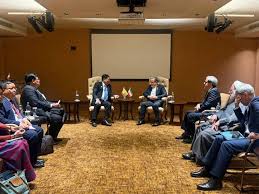Modern farming is quickly embracing technology to increase food production and profits. One of the Kenyan startups leading this shift is Sho Shin Innovations Hub, which has created digital solutions to support farmers — especially fish farmers who often face heavy losses.
In Kisii County, Mary Onsongo started fish farming a few years ago after the county government encouraged residents to embrace aquaculture. But her first attempt was heartbreaking.
“I started with 1,200 fingerlings, but every day I would wake up to find two or three dead,” Mary recalls. “I didn’t know what was happening, and I had to keep reporting to agricultural officers.”
To solve this challenge, Sho Shin developed e-Samaki, a water testing technology that helps farmers monitor their fish ponds.
“Our technology focuses on farmers, climate change, and smart cities,” explains Winnie Ongori, a director at Sho Shin. “With e-Samaki, we give farmers a device to test pond conditions like temperature, salinity, and alkalinity.
The data is sent instantly to their phones through an app or SMS, making it easy for farmers to take quick action.”
The system also uses Artificial Intelligence (AI) to analyze the data and give clear recommendations.
For farmers like Mary, this has been life-changing:
“Since I started using the technology, my fish no longer die mysteriously. The water is now safe, and my harvests have improved,” she says.
Another farmer, Thomas Okoyo, says the system not only tests pond water but also connects them with farm officers for training and advice. “e-Samaki helps us check water cleanliness and manage our ponds better,” he says.
Beyond aquaculture, Sho Shin is also developing other agri-tech tools. These include:
Soil sensors to measure acidity and moisture, helping crop farmers know how to treat their land.
An AI-powered plant scanner that allows farmers to take a photo of a sick plant and instantly get a diagnosis plus treatment advice.
Sho Shin is also working on climate technology to help organizations with ESG (Environmental, Social, and Governance) reporting and innovations for smart cities, in line with the UN’s Sustainable Development Goals.
Winnie Ongori believes these solutions will transform agriculture if scaled up:
“We want to be the go-to hub for solving everyday challenges.
But we cannot do it alone. We call on stakeholders — from government, private sector, and development partners — to join us in building an infrastructure that will help farmers, improve livelihoods, and secure the future.”
For now, Sho Shin’s innovations are already making a difference in Kenya’s fish ponds, showing how local technology can transform farming and create hope for future generations.



